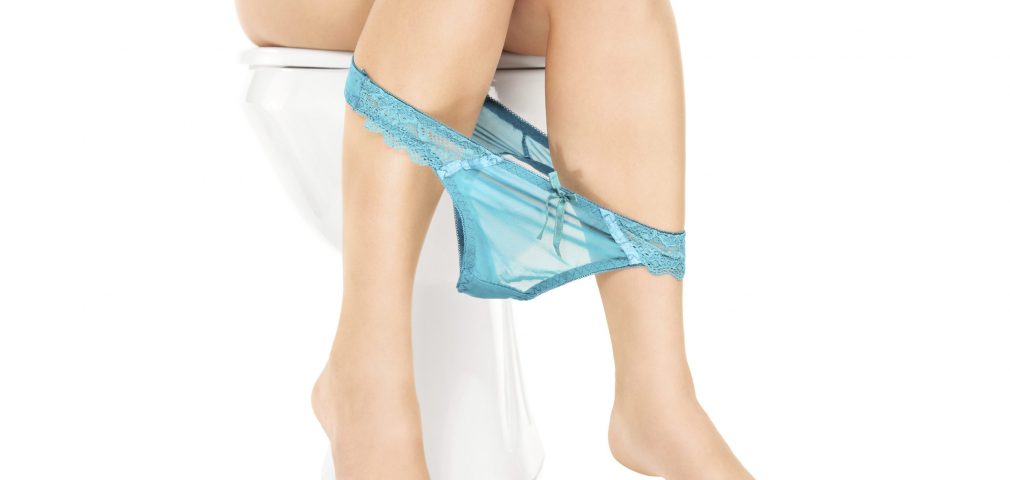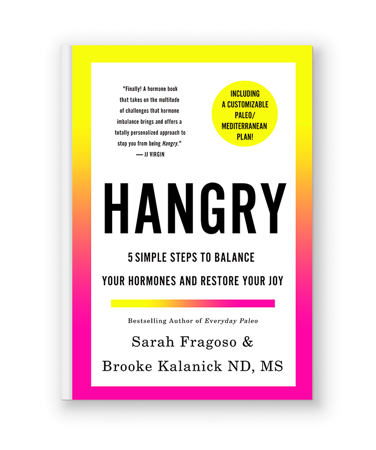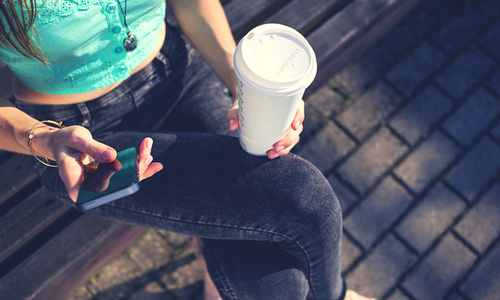
Are you the one that thinks, every time they leave the house: should I pee again? Or does waking up to use the bathroom keep you from getting a good night’s sleep? Do you strive to get all the water in each day but feel like if you just pee it right out anyway?
Order Hangry right now!
If you’ve ever felt like a Hangry B*tch and are ready to balance your hormones and restore your joy in just 5 simple steps then Hangry is for you!
GET YOUR COPY NOW
This article is for those of us that drink enough water but constantly feel dehydrated (or look so on bloodwork). It’s for those of us that seem like no matter how much we drink, it just goes right through us. Or those that feel like urine output doesn’t match input, like we pee more than we should based on our fluid intake.
This problem is very common in women like me with PCOS because of insulin resistance but several of the reasons we pee too often can occur with any woman.
First let’s discuss the two types of problems:
Too much and too often.
Polyuria is peeing too much. This is characterized by larger volumes of urine being produced, so you don’t necessarily pee all day but when you do you go a lot (greater than 2.5-3 Liters per day).
This is a more ominous sign of elevated blood sugar which can be an issue for anyone diabetic, pre-diabetic or with PCOS.
How this works is that as your kidneys filter your blood to make urine, they resorb or take out all of the glucose and put it back in your blood stream. If there is a large amount of glucose present, the kidney can’t take it all back so it ends up in the urine and it pulls out water with it making larger volumes of urine.
Get you FREE copy of my Guide To Lab Testing & Your Hormones
This guide covers hormonal testing and thyroid patterns and will show you how to suss out the Hormonal Dealbreakers of inflammation, anemia and blood sugar problems.
Get Your Free Lab Guide HereIf your blood sugars have been elevated, your HgA1c (hemoglobin A1C) is elevated above 5.7 or you’re frequently experiencing symptoms of high blood sugar after eating larger meals or carbohydrates in general (i.e. fatigue after meals, sugar or carb cravings after eating, cravings aren’t relieved from eating carbs/sugar or increased appetite after eating) this may be part of the reason you’re having to use the bathroom excessively.
More on finding your Unique Carb Tolerance and a guide to blood sugar symptoms here.
The second type of pee problem is urinary frequency. This doesn’t have to be large amounts, just more frequent (greater than 8 times per day.) Less common but more troublesome reasons for this include interstitial cystitis, neurogenic bladder and UTI (urinary tract infection).
If nothing in this post seems to fit your potty pattern, if you feel your bladder doesn’t fully empty, if your issues came on all of a sudden, you have pain with urination, fever or back pain, it’s wise to get into your doc and get tested.
However, there are much more common causes of frequent urination especially if you have PCOS:
Electrolyte Imbalance
This is a commonly overlooked aspect of stress, what is often termed “adrenal fatigue” (although this is a poor name for low cortisol patterns as the adrenals are not too tired to make cortisol, but there are other mechanisms at play) and blood sugar troubles. This is common in women with PCOS but can occur in any woman under stress.
Women with PCOS often are enduring constant blood sugar swings from high to low, especially PCOS women that do not have a difficult time losing weight (what I call brain based PCOS).
But again, this can happen simply from stress alone.
Signs of electrolyte imbalance include a rougher, dehydrated looking tongue; excessive sweating or sweating with little activity; water retention in feet, lower legs and hands; craving for salt; getting winded easily with every day activities or exercise; and difficulty tolerating bright light (like me who cannot be outside without sunglasses, sometimes I feel like a vampire…).
Often the hormone involved this pattern of excess urination is aldosterone, a hormone made by your adrenal glands that causes the kidney to hang on to sodium. When it’s low, you pee out more of this key mineral – when it leaves it pulls water with it. You may even see a slight shift in your bloodwork
Luckily this one is very easy to fix: take electrolytes.
Check out my electrolyte blend patients rave about it being one of th eir biggest “game changers” when it comes to supplements. Occasionally there are various other ingredients that need to be taken in increased doses (like bicarbonate) to best solve your electrolyte imbalance, but this is better determined with bloodwork and working with a provider to help.
Order Hangry right now!
If you’ve ever felt like a Hangry B*tch and are ready to balance your hormones and restore your joy in just 5 simple steps then Hangry is for you!
GET YOUR COPY NOW
Women with PCOS are what I call “mineral leakers”. We are often deficient in magnesium, zinc, potassium and sodium because our excessive urination cause us to lose them. While the electrolytes will help correct the imbalance, solving the blood sugar problem is key as that’s the cause.
High Cortisol
Chronic elevated stress and cortisol will inhibit anti-diuretic hormone which will increase your urine output.
Anti-diuretic hormones do just what the name implies, slows excessive urination. Any cause of long term stress can create elevated cortisol, or at least elevated at particular times of the day.
More on the ways you’re stressing and not realizing it here and be sure to read this post as well: What Stress Looks Like For Women.
As far as PCOS goes, elevated cortisol is more likely in what I call metabolic PCOS, those that have a harder time with fat loss. But again, this can happen in any women undergoing stress
High Adrenaline
While longer term, cortisol is a stress hormone that can increase urine output, in the short term a burst in adrenaline will also increase urine output. This often happens initially during stress reactions but also in time cortisol runs low and you rely more and more on adrenaline to get you through the stress of your everyday life.
With relation to PCOS, this can happen more with the brain based type (those without difficult time losing weight). This may be at play if you have to wake frequently during the night to pee – especially if you feel you have a hard time getting back to sleep, feel anxious when you wake or if eating helps you get back to sleep. These are all signs of low nighttime cortisol and high adrenaline.
Diuretics
One more cause of frequent urination is diuretic use. While there are many prescription diuretics, likely you’d know if you’re taking one. However there are a few natural diuretics you may forget about: caffeine and alcohol being the most obvious. However, higher doses of the amino acid taurine (1-2g per day) or vitamin b6 (200-250mg per day) also have a mild diuretic effect.
What To Do
As always, treat the cause be that blood sugar problems by keeping your nutrition sound and take nutrients that keep blood sugar more balanced. Most all of them are found in my balanced+beautiful multi vitamin. And grab some electrolytes. Finally: manage stress. For my top tips to manage stress and blood sugar, see this post.
Finally, when your hormones talk, listen.
When we ignore symptoms of our hormones talking we are being our own worst enemy. We push our bodies past their ability to recover from the stress of our daily lives, we think we’ll pay attention to ourselves when we have more time, or write it off as no big deal. Instead listen up and #beyourbestfriend.

